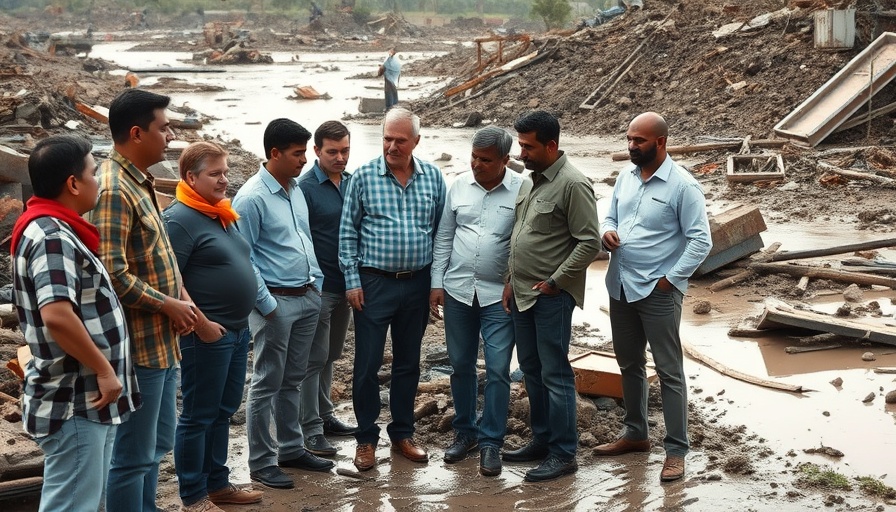
President Trump's Visit: A Closer Look at the Hill Country Flood Recovery
In a time of crisis, community responses are often scrutinized, and the recent flood events in Texas's Hill Country are no exception. During his visit, President Trump assessed the damage caused by intense flooding and confronted a wave of criticism directed at the local emergency response. Understanding the dynamics at play offers insights not only into governmental actions but also into community resilience.
The Importance of Community Resilience Amidst Criticism
As communities such as those in the Houston metro area pull together in times of crisis, it's vital to recognize the tireless efforts of local responders. Residents from areas like Bellaire, Meyerland, and Montgomery County have come to the forefront, supporting one another through volunteering and sharing resources. This community spirit is at the heart of disaster recovery—an element often overshadowed by the critiques of administrative decisions.
Listening to Local Voices: The Power of Feedback
The response to the flooding raised concerns regarding preparedness and resource allocation. Local officials and community leaders voiced their experiences and suggestions to the president, emphasizing the need for improved communication and support from higher authorities. This feedback loop is critical for optimizing future disaster response strategies and creating a more formidable support network.
Key Takeaways from Trump's Visit for Houston Communities
In light of the visit, community members are encouraged to reflect on their own disaster preparedness plans. With Houston's history of flooding, areas such as Lake Houston and Katy must remain vigilant. Strategies could include local workshops focusing on emergency protocols, establishing better communication systems, and fostering relationships with local government representatives.
Looking Ahead: Opportunities for Improvement
As Texas navigates through these challenging times, there’s an undeniable opportunity for growth. Local businesses can contribute significantly to community recovery by participating in or organizing fundraising events, while schools like those in Cy-Fair can initiate educational programs about disaster awareness and safety methods.
Inspiration from Local Heroes
While headlines may focus on national figures, the real stories of courage often emerge from within communities. Texans banding together to assist their neighbors showcases the heart of what it means to live in a supportive community. Many have opened their homes and resources to help displaced families—this goodwill serves as a reminder that, despite challenges, hope and kindness triumph over adversity.
Your Role in Community Recovery
This is a call to the residents of Houston and surrounding areas: stay engaged with your local government, participate in community events, and help one another in times of need. By being proactive, local citizens can significantly influence recovery and resilience efforts, leading to a more cohesive and supportive environment for everyone.
A Call to Action: Get Involved!
As the community processes these events, consider how you can contribute. Whether it’s by volunteering with nonprofits, attending town hall meetings, or discovering local initiatives addressing recovery from the floods, every action counts. Together, we can cultivate a stronger, more connected Houston community.
 Add Row
Add Row  Add
Add 



Write A Comment